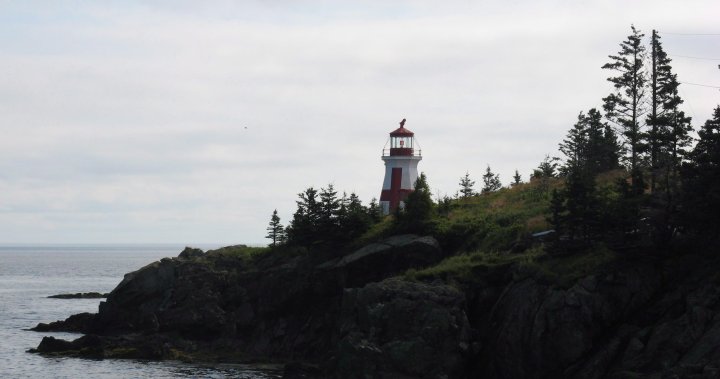Ottawa has exempted a small New Brunswick island off the coast of Maine from Canadian counter-tariffs it imposed on U.S. goods amid President Donald Trump’s trade war — goods the island’s residents rely on for their daily needs.
Campobello Island is only accessible year-round by a bridge connecting it to the closest town, Lubec, Maine.
Because of its geography, the island’s population of under 1,000 people often travel across the border for gas, groceries and other items, but have faced 25 per cent tariffs on those goods since early March.
Finance Minister François-Philippe Champagne, who is running for re-election as the Liberal candidate in Saint Maurice-Champlain, said Tuesday that the federal government has granted a “special exemption from previous tariff countermeasures on U.S. consumer and household products” to the island’s residents.
A statement from the Ministry of Finance said the exemption “is in recognition of the island’s unique situation.”
New Brunswick Premier Susan Holt welcomed news of the exemption in a post on social media.

Get breaking National news
For news impacting Canada and around the world, sign up for breaking news alerts delivered directly to you when they happen.
“We’ve been actively working with the federal government to recognize Campobello’s unique position given that it’s only accessible by road via the United States year-round,” Holt said.
“A huge thank you to everyone who helped ensure residents can now access essentials tariff-free.”
Since March 4, Canada has imposed 25 per cent tariffs on a total of nearly $60 billion of U.S. goods in response to Trump’s 25 per cent duties on steel and aluminum, as well as a separate order — tied to fentanyl — of 25 per cent tariffs on Canadian goods and a 10 per cent levy on Canadian energy.
The list of U.S. goods targeted by Ottawa includes groceries, footwear, cosmetics and items like tools and electronics that contain steel and aluminum.

Late last month, Holt told a weekly briefing on the province’s tariff response that the federal election had affected her government’s “daily” engagements to try and get an exemption for the island from Canadian counter-tariffs, but that the province would continue to push for it.
She said “proposed solutions” that would have U.S. border agents be more “flexible” with Campobello Island residents crossing back and forth would not go far enough.
“That’s not something you can take to the bank,” she told reporters at the March 27 briefing. “We want to see an exemption put in place.”
The island’s only other connection to the mainland is a ferry to and from Deer Island that costs $25 for a driver and vehicle for each crossing.
The New Brunswick government operates a free ferry that then connects Deer Island to mainland Letete.
However, the Deer Island-to-Campobello Island ferry only runs from June to September, and residents have long called for a year-round alternative to crossing the U.S. border.
Holt acknowledged during the March 27 briefing that “there’s a challenge there that needs to be addressed,” but didn’t say what that would entail or make any commitments.
© 2025 Global News, a division of Corus Entertainment Inc.






